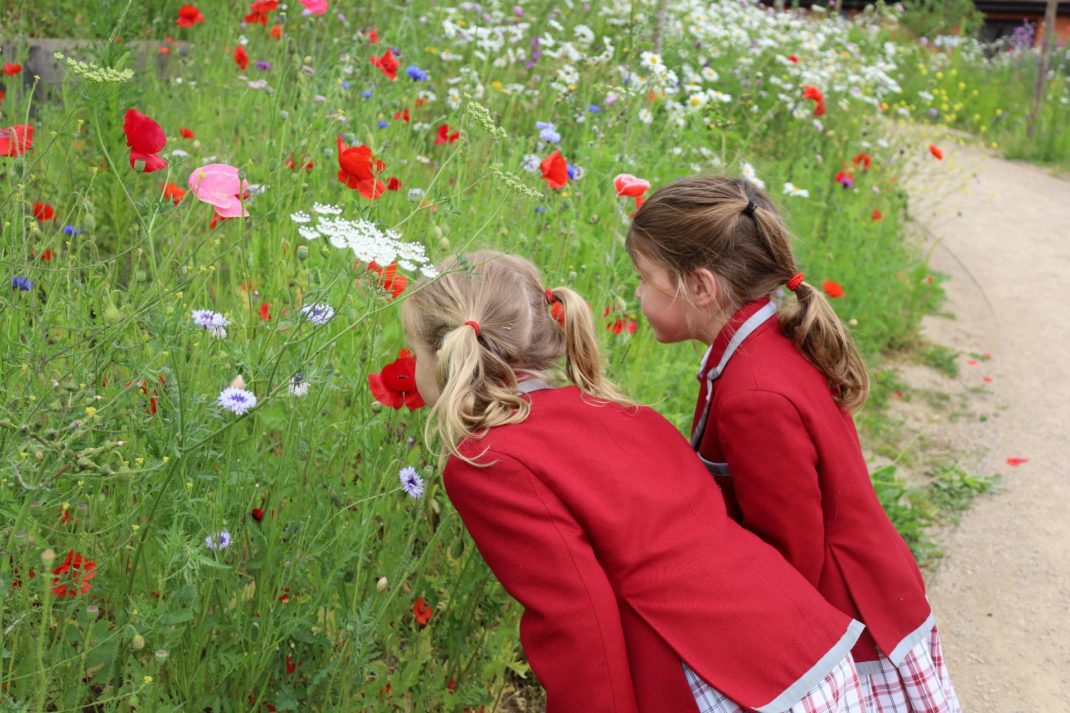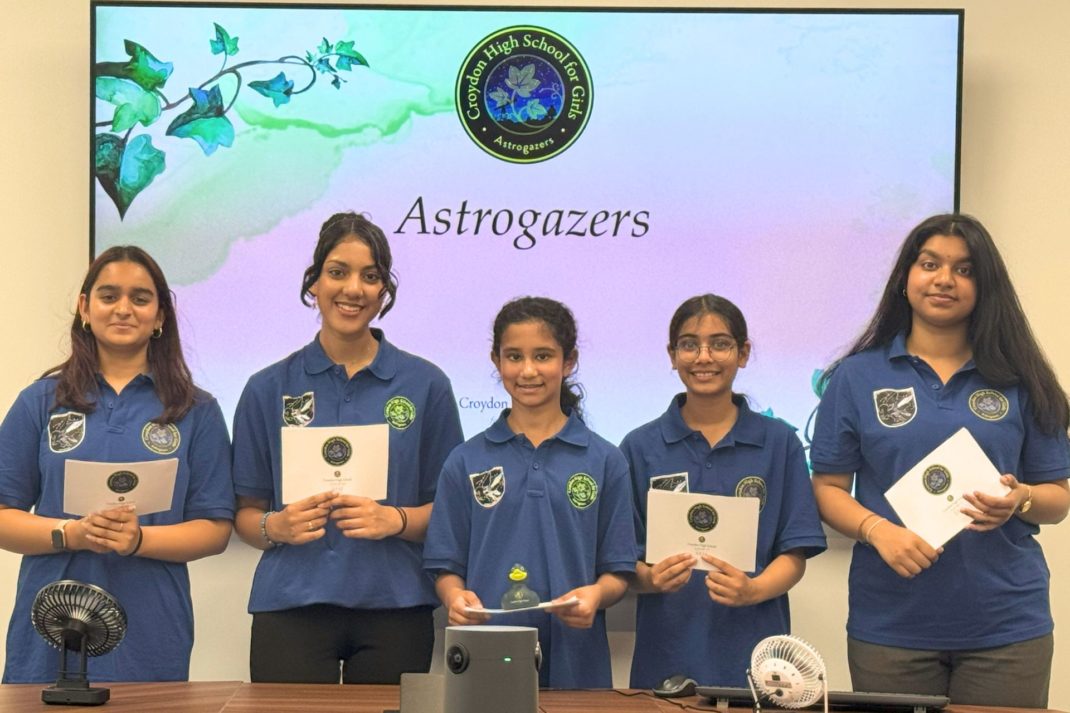The Rise of the Mentor
By
8 months ago
Sometimes, we all need a wise friend to listen to – no wonder that role is becoming increasingly prized
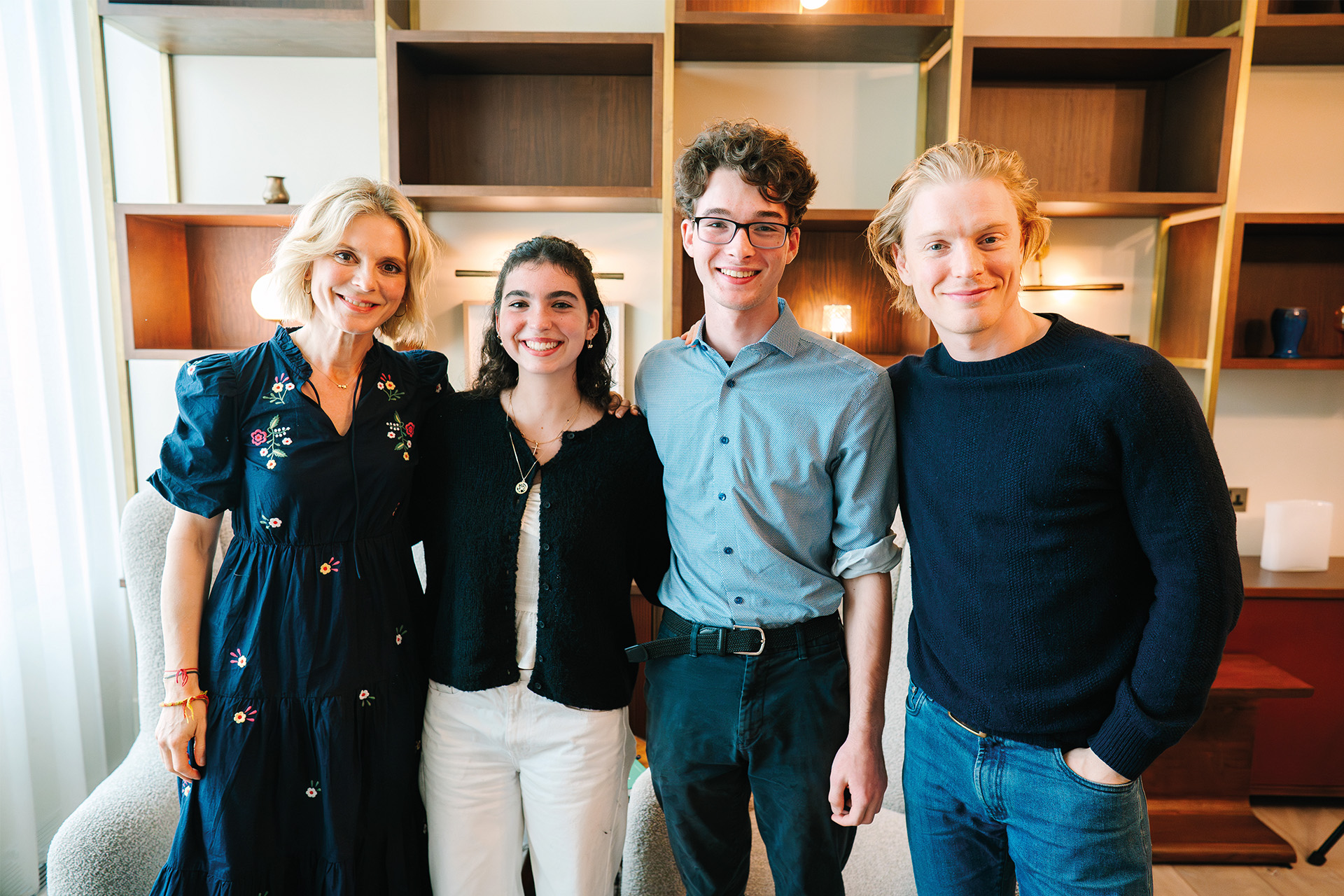
Teaching and pastoral care are, of course, integral to learning, and something that’s investigated as a matter of course when selecting a school. But in many ways mentoring is equally important. There are many facets to mentoring in school, but in essence it is the process of older or more experienced people supporting younger ones – and it has many benefits for all who take part. From parents to alumni to other pupils, the role of a mentor ultimately improves a child’s outlook and enriches their education and opportunities. And it goes way beyond parents coming to chat to pupils on a Friday afternoon. Mentoring can be a part of the entire school journey and can be implemented in many different ways.
Take co-educational boarding school Canford in Dorset. ‘Canford Global Connect is an online platform that pupils join towards the end of their time at school,’ says Development Director, Rowena Gaston. ‘Members on the platform are able to highlight if they are willing to become a mentor, which allows potential mentees to search for a mentor in a variety of industry areas.
‘The Development Office also assists with mentor matching where required,’ Gaston says. ‘This can include medical school, the military, finance, law and marketing. There is individual and group advice given about interview techniques, as well as former pupils happy to mentor those who are applying to schools abroad.’
A new sixth form building includes a Future Pathways Centre within, where mentoring will be further developed. Pupils will be able to go in person or online to get advice about potential career paths.
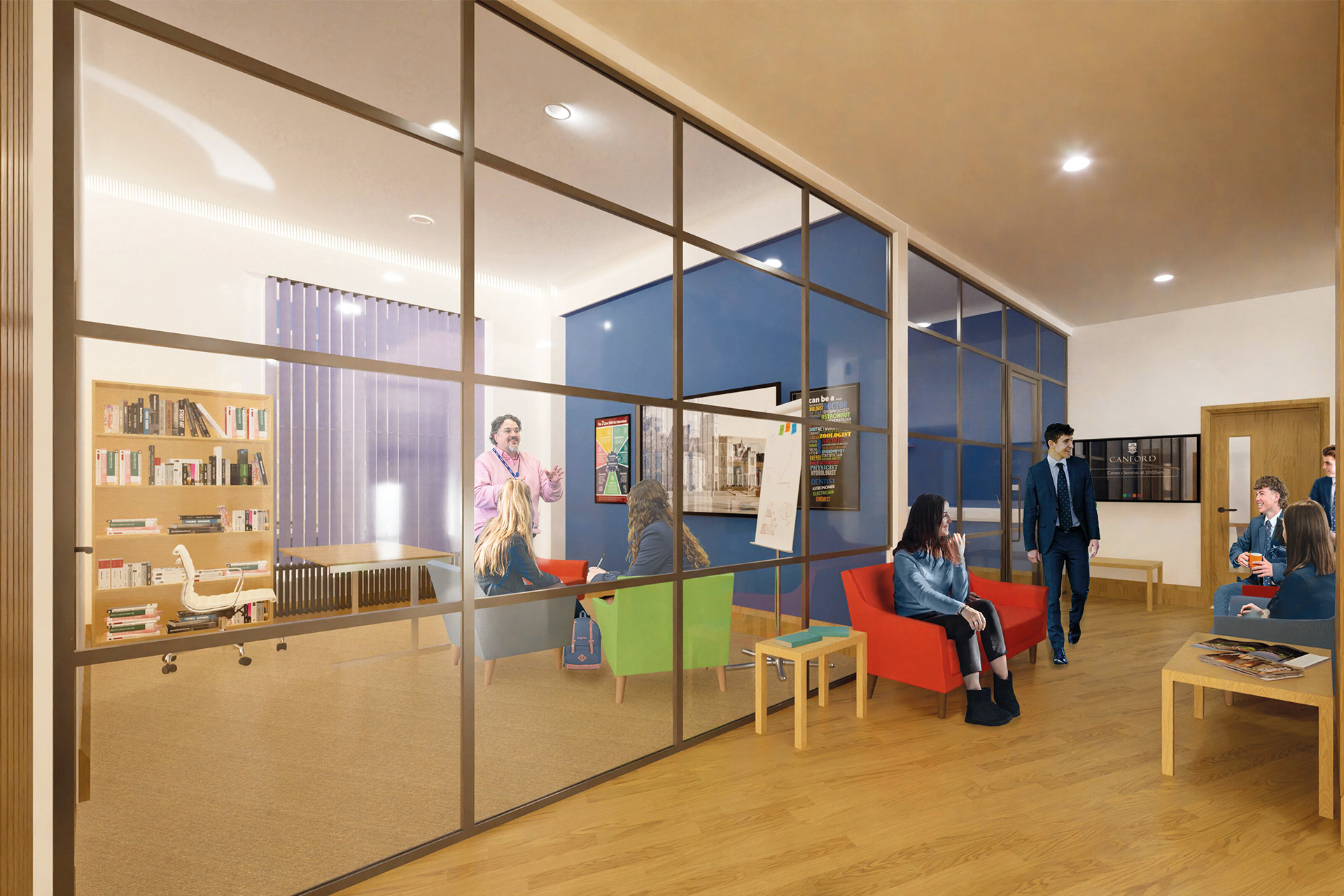
An impression of Canford’s Future Pathways Centre, coming Spring 2025.
‘Mentoring is a key part of the entire school programme,’ says Dr Preetpal Bachra, Deputy Head of Bryanston School near Blandford Forum, Dorset. ‘Mentoring has to be adaptive, person-centred, and be able to call on professionals. We have many parents and Old Bryanstonians that offer their time, wisdom and skills to our students, but the first job of mentoring is to help children know that they have worth and that they can go out and aspire to achieve goals even if they don’t come to fruition; outcomes are never guaranteed but we do all we can to make them more likely and we offer support in a number of ways.’
In terms of alumni, the school has a newly developed programme. ‘The development department has really grown connections with the OB network, and there are more than 4,000 alumni to whom kids can speak,’ says Dr Bachra. ‘At a recent staff and OB cricket match we had a student who had just graduated from Cardiff University in Environmental Science and wanted to work in sustainability. I was immediately able to suggest he speak with a parent who works in that area. We’ve also had a pupil who did the JP Morgan apprentice scheme and who now mentors other pupils looking to complete it.’
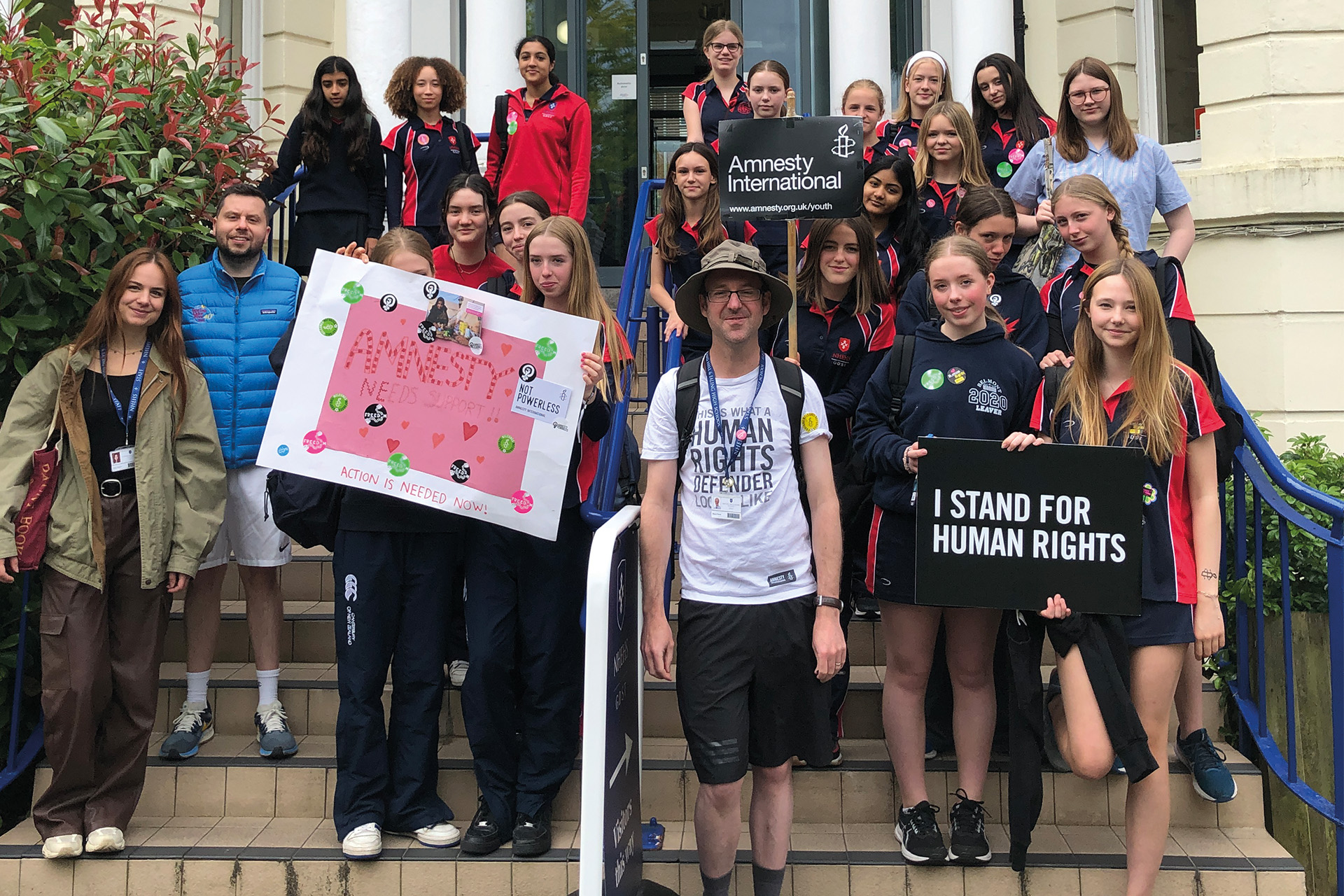
Notting Hill & Ealing High School, GDST.
‘For us, mentoring is the idea of pupils being helped to understand their next steps and providing guidance and support,’ says Matthew Shoults, Headmaster of Notting Hill and Ealing High School. He says that, like other schools, they provide bespoke mentoring in terms of alumni. ‘We might connect someone who has an area of expertise that a student is interested in, such as engineering, design or law.’ But they also have broader mentoring events. ‘Last term, we had an event where three alumni who work in STEM shared their expertise in a panel session and then mingled with the pupils.’ It was, he says, an excellent way of getting informal advice and understanding the next steps they might take.
But it’s not just parents and alumni. Pupils can mentor, too. Latymer Upper School in west London has a very highly successful and student-led Academic Mentoring scheme. The Academic Mentoring Department runs the scheme, and as well as full time teachers and teaching assistants, there are 100 voluntarily participating students. ‘Peer-to-peer learning is incredibly powerful,’ says Nina Devereux, Head of the Academic Mentoring Department. ‘This vertical collaboration has been a really successful integrative initiative within the wider school community.’
She adds, ‘The Academic Mentoring Scheme is a great source of pride to me. Our sixth form cohort volunteers their time to help and mentor children lower down the school in their specialist subjects, before and after school throughout the week. Your child might want some extra help with maths or more practice speaking mandarin, or indeed may be so enthralled by, say, history that they want to go into far more depth in that subject and be extended intellectually.’
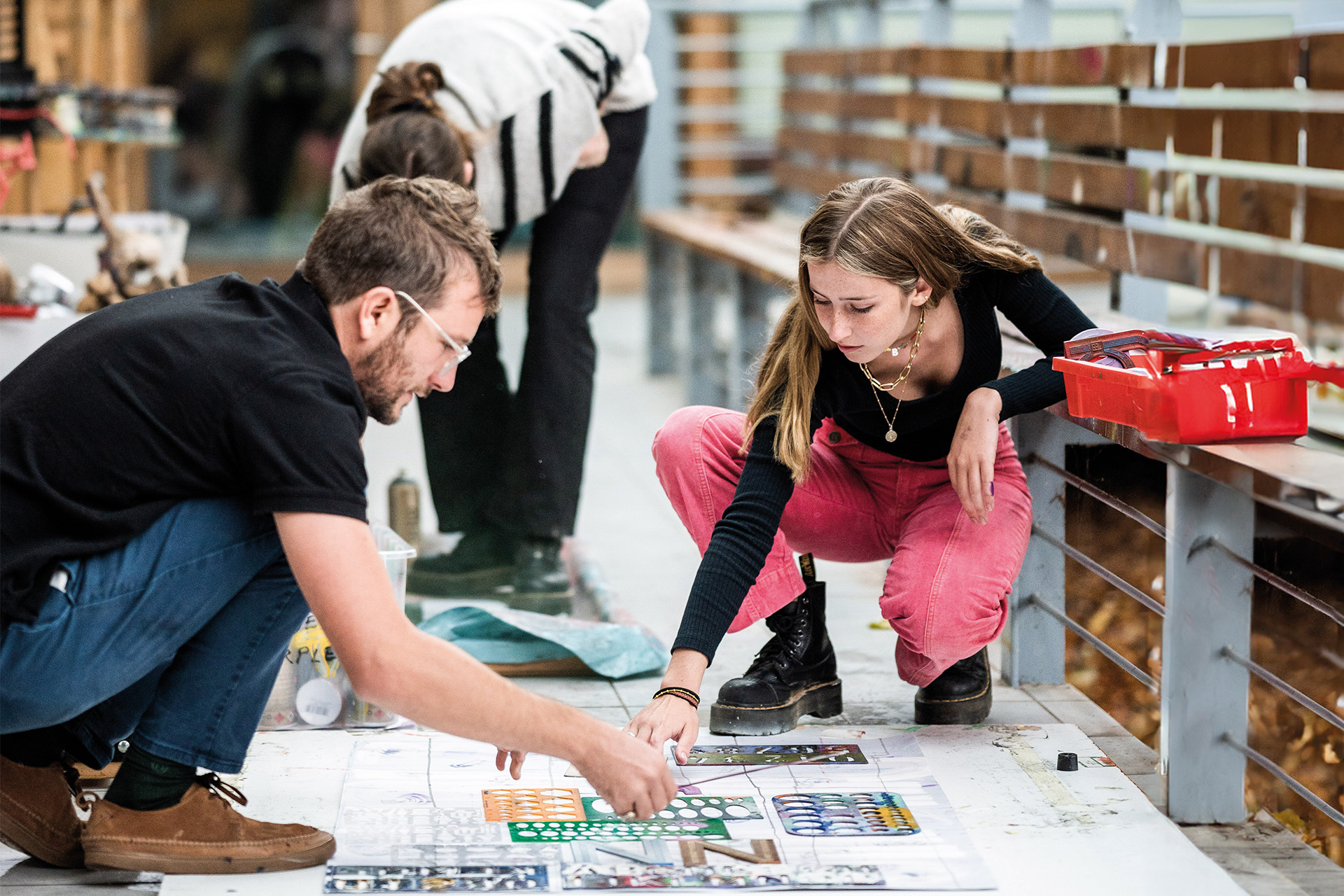
Pupils at Bryanston receive mentoring from teachers, alumni and parents.
Godolphin and Latymer, a girls’ school near Hammersmith, has six houses within which they have what they call ‘vertical mentoring’ where older girls lead by expertise and example. ‘It’s one of the most joyful aspects of school life,’ says Head Dr Frances Ramsey.
Parents and alumni also offer advice and insight. ‘At a recent careers discovery event parents came in to talk to pupils – for example, we had someone who works in government and public relations explaining the role. Tech start-ups and consultancy are always very popular, and of course things like law and medicine.’
Moreover, its Bridge programme introduces local children to the school. ‘One Saturday morning a month around 80 come in and have English and maths lessons as well as two other subjects on rotation,’ says Dr Ramsey. ‘They also do some sport. Teachers run the sessions, but sixth formers help out. We also run two full weeks of sessions where we help them prepare for 11-plus exams, which are very hard if you’ve not seen that type of paper before.’ This September, eight girls are joining from the programme, but they don’t have to be applying for Godolphin specifically.
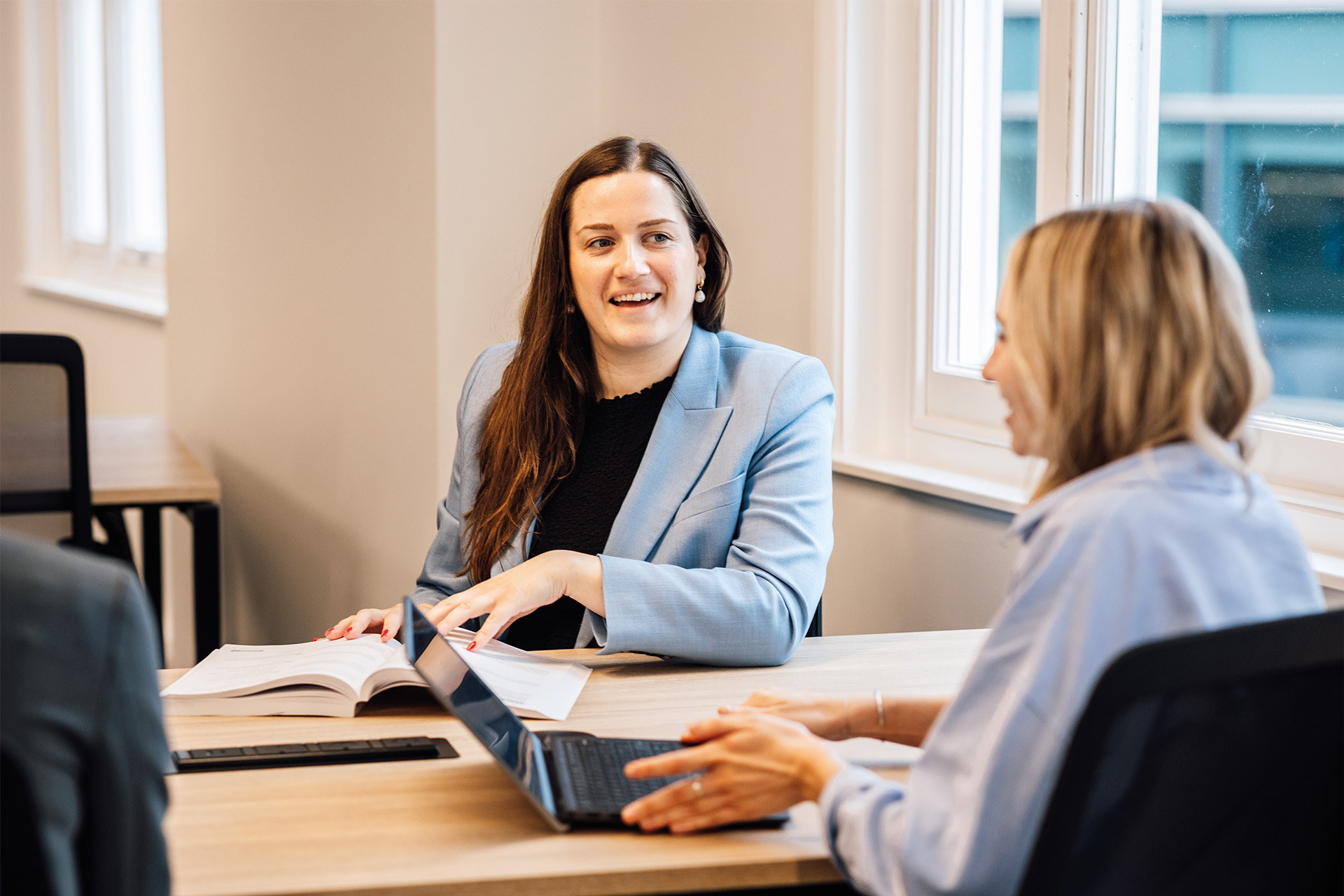
Oxbridge Applications of Dukes Plus mentors students.
At perhaps the most rarified and academic end of mentoring is the preparation for the UK’s leading universities. Oxbridge Applications, a member of the Dukes Plus family of tutoring and student experiences organisations, is the global leader in preparing students for admission to Oxford and Cambridge universities and designs programmes with academic mentoring at their heart. They point out that the UCAS admissions process centres a student’s academic commitment to their chosen course and so it’s vital that applicants demonstrate their super-curricular engagement.
Dr Ricardo Tavares, Director of Dukes Plus explains, ‘For mentoring to be a successful exercise, academic mentors must be experts in their field in order to guide their students effectively as they venture to the edge of their understanding. Mentors make academic recommendations, pose challenging questions, and provide a safe forum for students to feel comfortable not knowing the answers immediately. Every year, more than 500 Oxbridge Applications students successfully win places.’
However, he says, it is often the responses from those that aren’t accepted that are the most profound. ‘We are always overjoyed to hear the countless stories of students who see the long-term value of the application journey in and of itself. Students will talk about a new-found love of their subject, which they carry forward to their chosen university, wherever that may be.’ And that is one of the most impressive results of the mentoring process.

